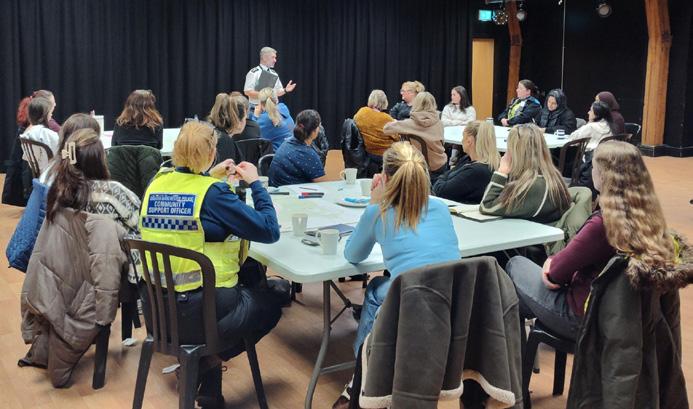





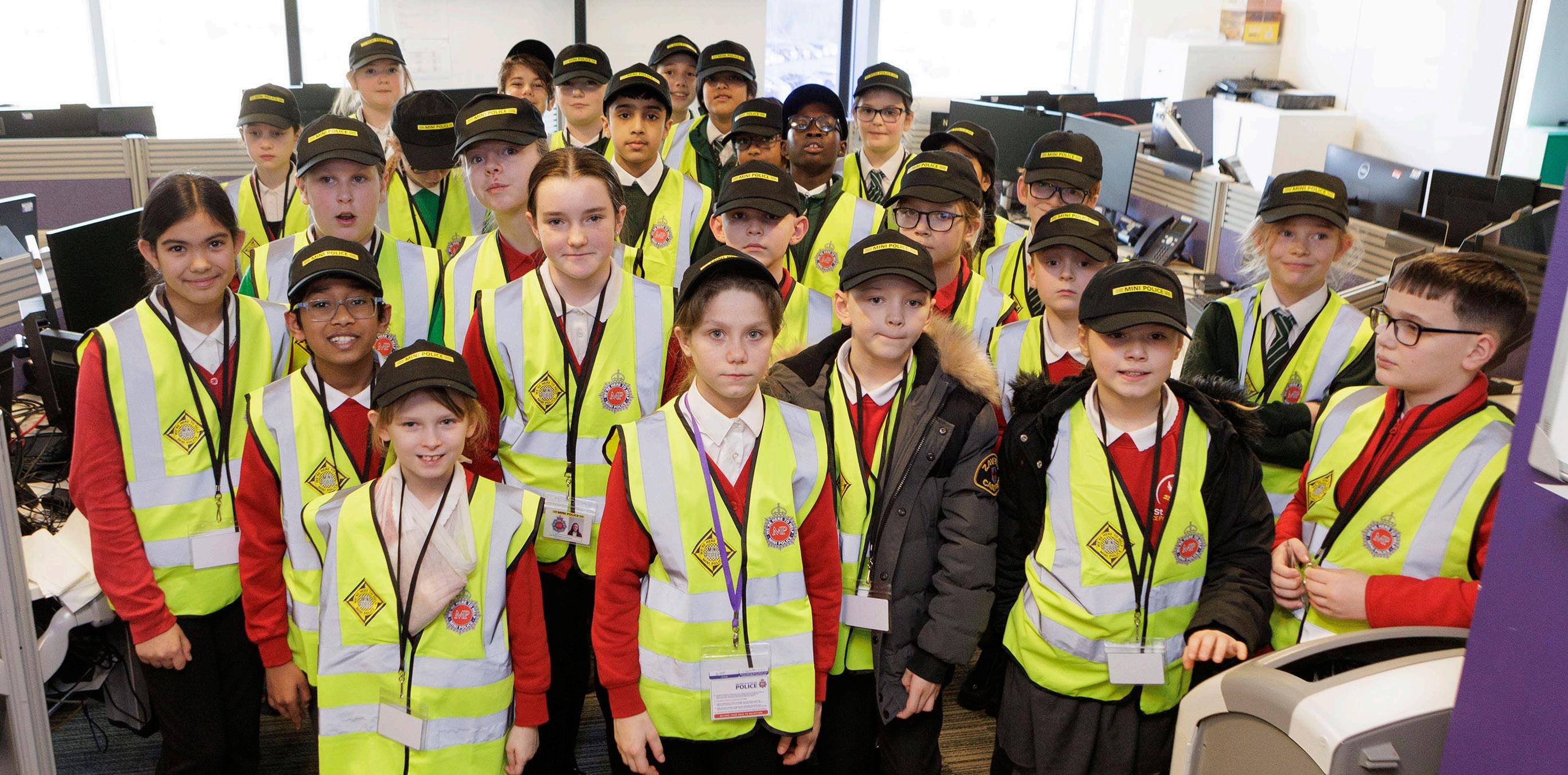
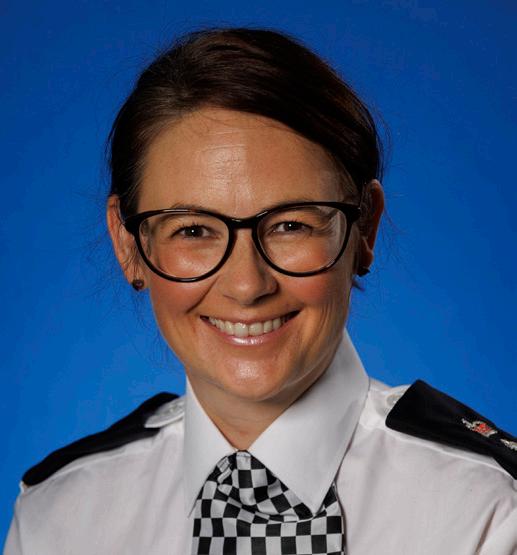
This District Brief will look slightly different to previous editions.
It will contain more key messages from the district and include the good work that has previously been sent out on the weekly email.
I felt it was better for all to have all the information in one place each month so I hope you find it informative and useful. Any feedback please contact my PA jade.carter@gmp.police.uk
It has been another busy month for Bury - I want to acknowledge all the hard work and efforts you put in to make our Bury communities safer. Every day I read about the excellent efforts you go to serve the community of Bury.
From saving lives by entering rivers, dealing with complex high risk missings, putting serious DV offenders behind bars and engaging with our younger community with the mini police and youth engagement events, I always feel honoured to be the District Commander of Bury Thank you.
I was disappointed to hear that unfortunately some of our response colleagues were assaulted this month. Despite the appalling actions of the offender they gallantly dealt with a difficult situation and gave the offender reassurance and first aid after deploying PAVA.
This is a reminder that Bury police officers are professional regardless of the circumstances and is testament to those individuals. I have no doubt Bury will remain busy so keep up the good work.
Thank you. Chief Superintendent Kirsty Oliver
After winning GMP’s Christmas card competition, Bury’s Mini Police were invited to FHQ to meet CC Watson.
The Chief praised the children for their hard work and acknowledged that a lot of time and effort had gone into their designs, with the young officers not only highlighting Christmas spirit, but also considering the messages to send out to the community in their new roles as mini police officers.
The young officers came primed with a variety of questions for a Q&A, and the subsequent answers certainly gave them a glimpse into the life of a Chief Constable.
One confident mini officer went straight in with: Have you ever been arrested? After lots of laughter, Mr Watson answered: “That’s an easy one, no I’ve never been arrested and if I had I don’t think I’d be in this job today! The thing about being an officer though is none of us are above the law, anyone can be arrested if they have committed a crime, but as a police officer, you choose to do the right thing day in, day out. Everyone has the choice to do the right thing or do the wrong thing and the people we arrest have made the choice to be involved in something they shouldn’t be doing. That’s why having people like you, who make the right decisions and are role models to your friends is so important as we work to keep our communities safe.”
Following the Q&A, in which questions ranged from ‘what inspired you to be a police officer’ to ‘can you arrest the King’ – which, for those of you who don’t know, the short answer is no, the King cannot be prosecuted -the children were treated to a behind the scenes tour of the FCCO.
There they gained a greater
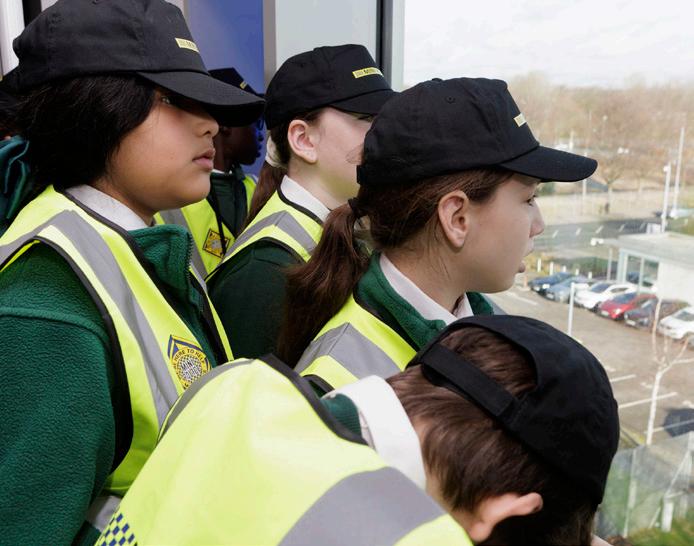
understanding of where emergency calls come into and how they’re managed, ensuring the right officers are deployed and the necessary steps are taken to help the person calling.
The mini officers were then given a rare glimpse in to the Silver Command suite at FHQ – a hub kitted out with everything needed to successfully run large scale operations when big events are held across the city.
The children were given a task and asked to locate a wanted person, who had suspectedly stolen valuable items (pens and the office dinosaur). The children radioed through descriptions of the suspects and were able to send officers to their exact locations.
The suspects were arrested and searched before the officers turned their attention to the stolen goods. To ensure they knew what to look for, the children provided descriptions over the radio, which ensured successful retrieval.
In a not so shocking turn of events, the suspects and officers involved turned out to be members of Inspector Jim Corrigan’s team who gave up their time to facilitate this activity for the budding mini officers. The children loved seeing firsthand what happens and were thrilled to be able to play an active role using the equipment officers use.
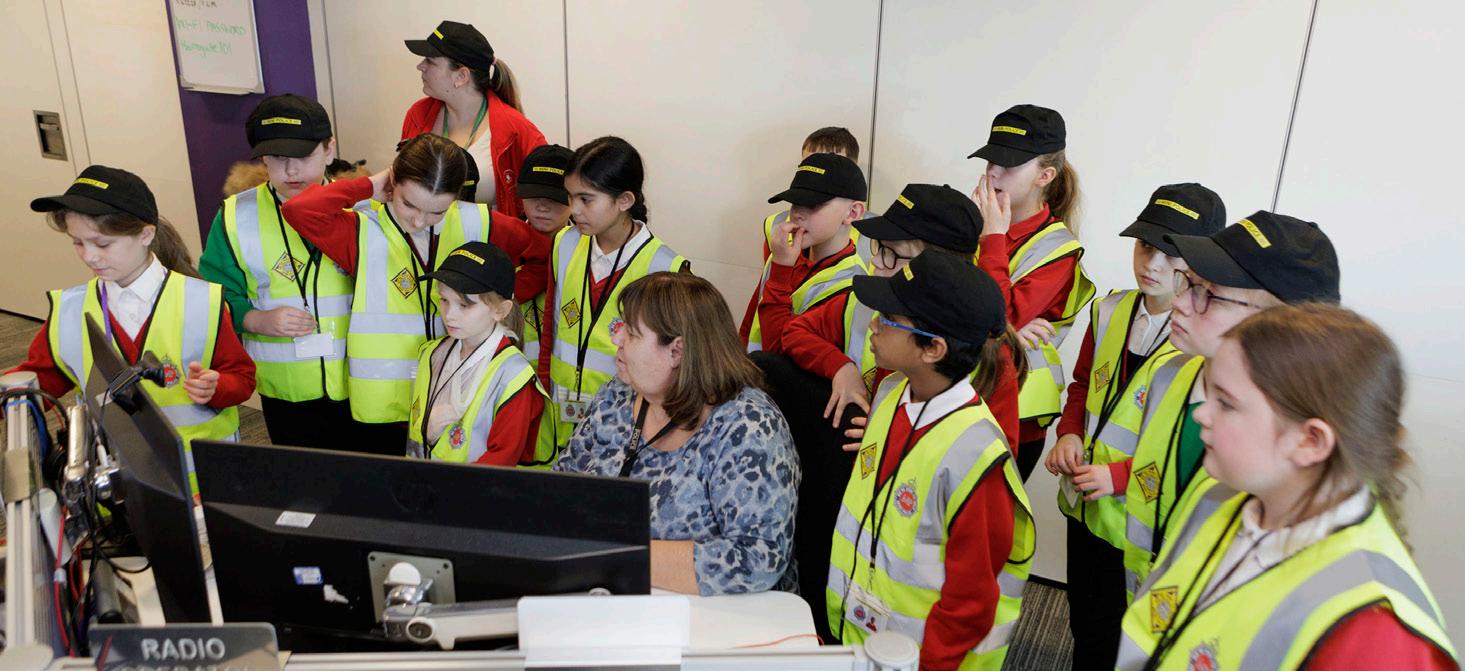
The BBC joined us in the city centre one evening in January, to see how GMP and the hospitality industry are safeguarding young people through increased engagement, education and test purchasing.
Over the course of the evening, we conducted several test purchases at various hotels across the city centre to see how they handled situations of potential exploitation in their hotel. Using a plain clothes officer as a suspect and a volunteer posing as an underage victim, we attempted to book a hotel room to see if the staff could spot signs of child sexual exploitation and take action to safeguard young people.
Overall, we could see that the majority of hotels had a good understanding of child exploitation, as a result of Operation Makesafe training; they challenged the test purchasers and refused to sell them a room before calling the police to report their concerns.
In one instance, employees failed to challenge the test purchasers or report suspicious activity to the police. A full debrief was conducted after this, and further training will be required to help them identify signs of child exploitation and understand the impact that allowing people to book a hotel room in suspicious circumstances can have.
The aim of the operation is to empower hoteliers and employees to feel confident in spotting the signs of potential exploitation happening in front of them and reporting it to the police so that we can act. These operations also help us to understand where there are gaps in the knowledge and training of hotel staff so that we can address these to ensure young people are kept as safe as possible.
Chief Superintendent David Meeney, District Commander for Manchester, said: “It is vital that we raise awareness amongst key local businesses as well as members of the public so they
can learn what to look out for, spot the signs, and ultimately help safeguard young people. Sometimes there may be a perfectly innocent explanation for a situation, but if we can protect even one vulnerable young person from harm, this initiative will have been worthwhile.”
Indicators of child sexual exploitation within the hospitality sector include, but are not limited to:
• Adults who appear secretive about their visit or try to conceal that they are visiting in the company of a child or young person.
• Arrival of young person with a boyfriend/girlfriend who appears older than they are.
• Refusal to provide identification or credit card details and attempting to pay in cash.
• Requesting an isolated room, a room close to a fire exit or a room with easy access to the car park.
• High levels of visitors to a guest room.
• Visitors arriving and asking for a specific room number without knowing the name the room is booked under.
• Refusal to have room cleaned or visited.
• Pre-paid bar tab or consumption of pornographic film channels in a room occupied by a child or young person.

As part of our ongoing drive to improve the way we engage with vulnerable victims and witnesses, including children, GMP will shortly launch a new process for arranging and conducting video interviews with children and vulnerable adults.
Ahead of the rollout of the new process, training sessions will be provided for anyone whose role involves dealing with victims and witnesses, including response, DIT, CID and CPIU.
The training will take place between Monday 10 and Friday 14 February, with sessions on each day from 10am to 11am and from 2pm to 3pm.
Each session will take around an hour, with training followed by a Q and A; the training will count towards continuous professional development (CPD) hours for detectives.
You can view a full list of links to each training session by scanning the QR code below.


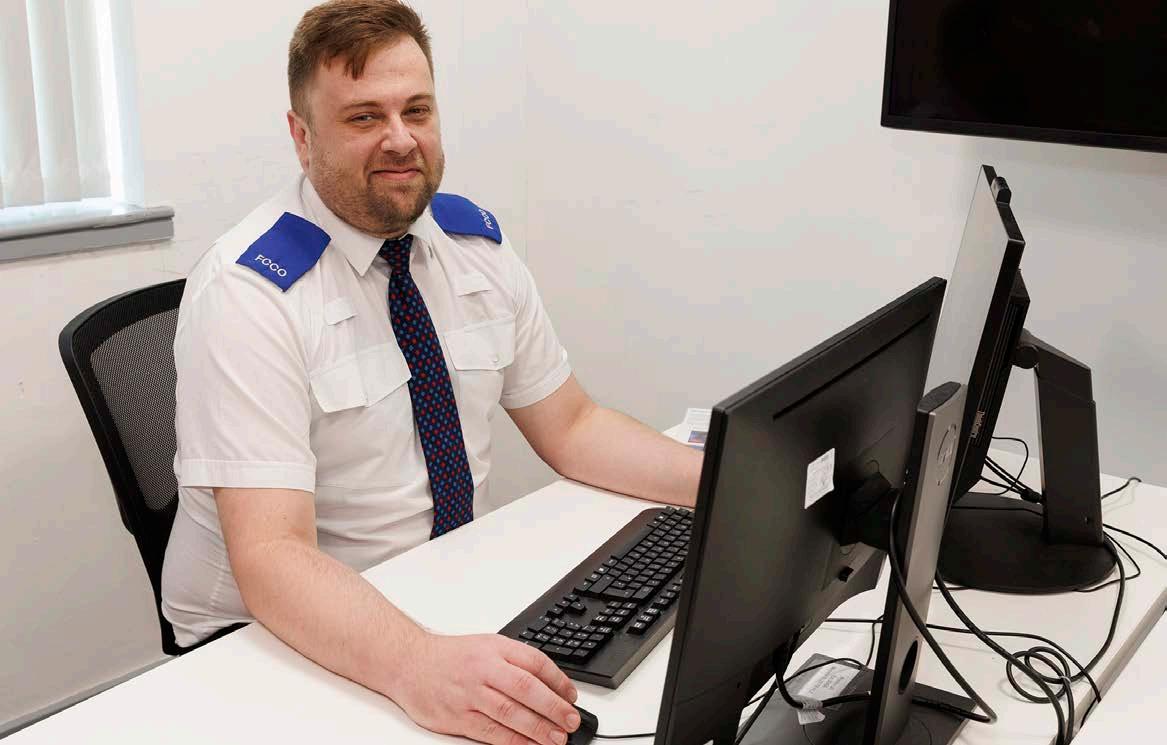
As Right Care, Right Person (RCRP) moves into its second wave, we spoke with Bradley Sone, a call handler at Claytonbrook FCCO, about the implementation of the initiative and its progress so far.
How do you feel about RCRP so far?
So far the introduction of RCRP in GMP has had a huge impact. There was a lot of worrying prior to launch, but the whole team seems to be on board now making sure the callers are directed to the most appropriate agency to help them. As a force we have had a drop in deployments to concern for welfare calls, freeing up patrols to go to other incidents; there has also been a drop in the number of concern for welfare jobs received from partner agencies, which are now more likely to contact the more appropriate agency as their first point of call.
What aspects have been positive for you?
For me the most positive aspect of RCRP is getting the caller the help they need. For so long the police have attended everything to try and help as best they can, but with this new process now in place the people of Greater Manchester can get the right help that they need.
What challenges have you encountered with RCRP since it was implemented?
My team specifically struggled with the changes to the missing persons policy [Operation Addition] rather than RCRP itself –they were both big changes to two big parts of call handling, and the missing policy change seemed to not be shouted about as much.
How did you overcome these challenges? Who or what helped you?
We communicated any challenges we encountered to the RCRP senior leadership team (SLT) and the subject matter experts (SMEs) in the room, who made amendments to the policy where appropriate and communicated changes so the new information could be filtered down. Throughout the whole implementation of RCRP there has been a lot of help and support available from the SLT and the SMEs.
How do you think the public feels about RCRP?
Members of the general public who I have spoken to or assisted with jobs all seemed happy with the change; a lot of the time on calls I have found that people were just unaware of who else they could call so they called the police, but when we pass on advice for who else to contact, they are happy to follow it.
What do you hope to gain from RCRP in the future?
By continuing with RCRP, we can continue to get the people of Greater Manchester the right help. As a result of fewer deployments for concern for welfare calls, we can attend more jobs in a given timeframe.
Are there any specific improvements or outcomes you are looking forward to?
The policy continues to be updated as we continue working with RCRP. The changes so far have all been appropriate, they haven’t added any extra work to the control room, and the room as a whole is more confident with RCRP. I cannot think of any specific improvements needed at this time.
GMP’s Association of Women in Policing (AWP) will be holding an International Women’s Day event on Friday 7 March 2025 at GMP Force Headquarters.
The event, which will take place in room 515 of FHQ from 9am to 3pm, will be opened by ACC Steph Parker and feature presentations from:
• Police History Society chair and former senior Metropolitan Police officer Kate Halpin QPM on the diverse history of women in policing
• Renowned academic Dr Sajjan Gohel on the role of misogyny in the ideologies that drive terrorism
• GMP Det Insp Hayley Riley and Ch Supt Colin McFarlane on the importance of workplace mentoring and female representation at the board level
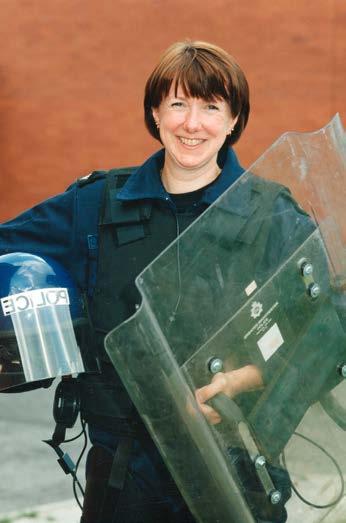
• GMP leadership trainer Rebekah Renshaw on professional development within policing
• Ruth O’Malley, head of data science at Counter-Terrorism Policing, on the value of police staff in complex investigations
Attendees will be able to visit stalls for support networks and bodies both within and outside GMP, and network with female colleagues from across the force. Food will be provided, with vegan and halal options available.
If you’re interested in attending the event, please email AWP@gmp.police. uk with your rank and division.
There are only 50 places available at the event, so get in touch as soon as you can!
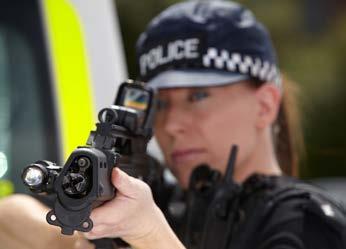

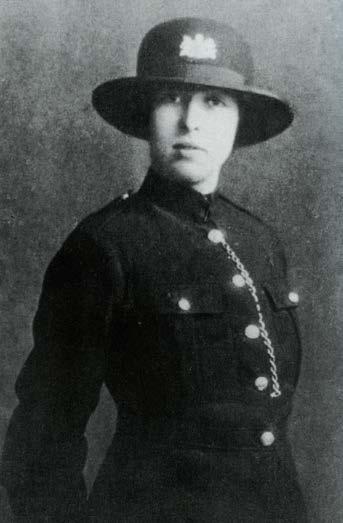
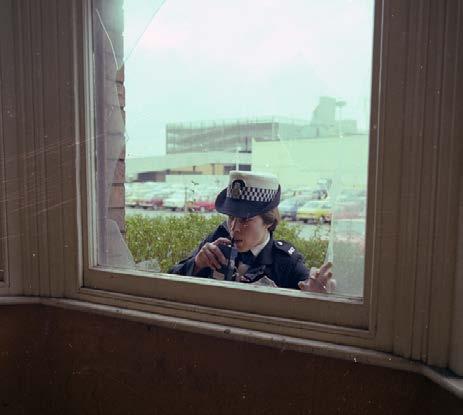

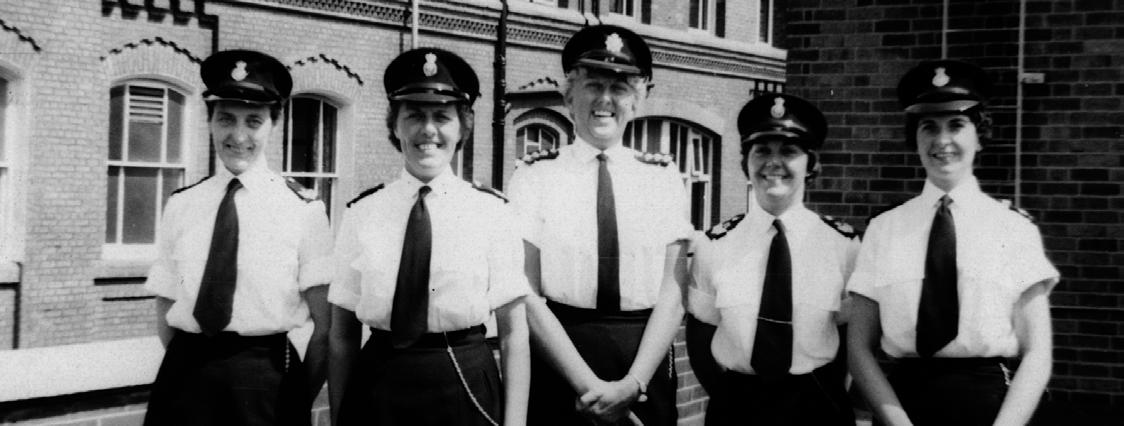
A new statutory Victims’ Code is now in effect, placing mandatory requirements on all police forces and criminal justice partners to provide consistent, high-quality support to victims throughout their journey through the criminal justice system.
In order to help embed the Code into GMP practice at all levels, for both police officers and staff, ACC John Webster (Criminal Justice and Custody) and Victims’ Services strategic lead Louise Sever have put together a video that provides a high-level overview of what the changes mean for us as a force.
ACC Webster said: “These changes represent a major step forward in how we support victims of crime.
“The new Code puts clear obligations on us to provide better information, support and communication to victims, while working more closely with our partner agencies.
“Every contact with a victim is an
opportunity to build trust and confidence in policing.
“These new requirements will help ensure we provide consistent, professional support to every victim we encounter.
“Remember, supporting victims effectively isn’t just about following a code – it’s about providing the professional, empathetic service that victims deserve and that builds public confidence in policing.”
Key changes which officers and staff should be aware of include:
• A broader definition of ‘victim’ that includes those who have witnessed crime, those whose birth resulted from criminal conduct, those who have lost a close family member to crime, and children who are victims of domestic abuse.
• Mandatory compliance with the Victims’ Code, requiring us to provide specific services unless there are good reasons not to.
• New requirements to collect and share data about victim services with other criminal justice agencies.
• Specific obligations around notifying schools when we believe a child may be a victim of domestic abuse.
• Enhanced information sharing framework with clear guidelines on handling victim information.
You can view the video by scanning the QR code below.

The post-incident procedure (PIP) is a national process designed to guide GMP officers and staff who have witnessed or been involved with a death or serious injury (DSI) of persons following police intervention or contact, where there is no suggestion of misconduct or wrongdoing on behalf of the GMP employees involved.
The procedure is in place both to enable officers and staff to provide any independent inquiry with the best evidence that they can and to ensure that the welfare of any GMP officers or staff members involved in an incident of this kind is prioritised at all stages of the process. It has welfare at its core and offers an element of protection
to officers who have often acted with nothing but courage and professionalism in extremely challenging circumstance.
All GMP officers and staff should ensure they are aware of the PIP and how it works – DSI incidents could affect anyone, public-facing or otherwise, and irrespective of their role or rank.
Our Creative Media Imaging team has produced an informative video covering the key aspects of the PIP, to give you an element of confidence in the process in case you are ever involved in an incident in which a member of the public has either been killed or seriously injured.
You can watch it by scanning the QR code to the right.
Please be aware that the video contains graphic footage which some viewers may find upsetting or distressing.


The latest season of Channel 4’s behind-the-scenes documentary series Manhunt, which aired through January, focuses on teams at GMP as they investigate a series of cases.
The programme, which has been described as ‘absorbing…a low-key tribute to diligent police work’ by the i and ‘gripping’ by the Daily Mail, follows the progress of Operations Feverfew (investigating the February 2022 kidnap and murder of Christopher Hughes), Southsea (the hunt for the killers of Neri Morse, who was stabbed in Ancoats in November 2022) and Bure, which sees officers respond to intelligence that a man is planning to attend a large public event with a gun.
Op Feverfew, the subject of the first


episode of the series, is the complex investigation into the kidnap and murder of Christopher Hughes in February 2022. The documentary crew follows the work of DI Justin Bryant and his team at GMP’s Serious and Organised Crime Group following an initial 999 call reporting a man being forced into a car in Wigan, as they piece together evidence and deploy resources to locate Christopher and his abductors. Once a body is found, the missing persons case becomes a murder investigation; and the team must uncover what happened –and why.
The second episode follows Operation Southsea, which sees the Major Incident Team spring into action when a stabbing on a busy street in broad daylight leaves
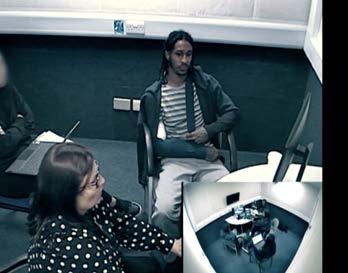
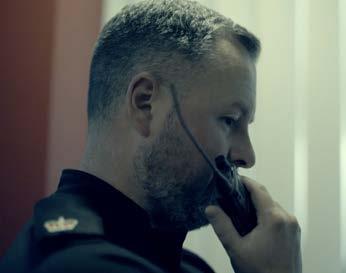
24-year-old Neri Morse dead and three suspects nowhere to be found. The team calls in specialist intelligence officers to track the fugitives before they strike again.
The third and final episode focuses on Operation Bure, an investigation into intelligence that a man was planning to attend an event with a gun. In the space of only a few hours, officers must respond proactively and dynamically to locate the potential offender and mitigate any threat he poses to the public.
Every episode of Manhunt is now available to stream at https://www. channel4.com/programmes/manhuntdocumentary.


GMP’s ongoing evidential property management (EPM) streamlining project was introduced to support with the reduction of serious risks to the retention and accessibility of evidential property across the force. One key area of focus is the significant volumes of destruction backlogs being held across the force, with around 44,000 evidential holdings currently awaiting further action or disposal. Backlogs like this significantly increase the risk to GMP, and therefore a key focus has been placed on streamlining and stabilising the EPM stores and their content.
Under the EPM ‘streamline and sustainability’ plan, a performance dashboard was created to support with the identification of high risk and priority areas within the evidence property management system, ensuring that the project team was dealing professionally


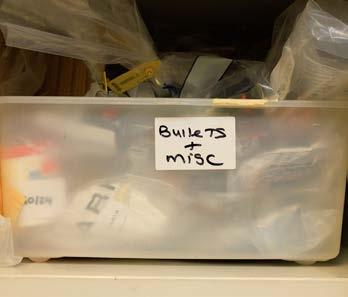
with the management of evidence, to safeguard its integrity in support of the prevention, reduction and detection of crime, keeping people safe, and caring for victims. Weekly SPOC meetings were introduced to share challenges, review ideas and ensure urgent actions were reviewed regularly.
These initial solutions will now be followed by a series of localised days of action, which will see some evidence storage facilities temporarily close for a few days to allow the project team, EPM store staff and divisional officers work collaboratively to reduce existing backlogs. On the first of these, a ‘proof of concept’ session at Oldham which began on Monday 27 January, the team was able to reduce the current backlogs from 3,595 destruction items to 633 over a three-day period.
Senior Change Project Manager Lisa Semple, who is overseeing the project,

said: “We’re already very pleased with these initial results, and we’re looking forward to further successes throughout the first half of 2025.
“The Oldham day of action follows on from a series of SPOC-led actions in 2024 which saw reductions in disposals of 60% at Longsight; 55% at West Didsbury; 47% reduction at Oldham and 43% at Wigan. Our overarching goal is to reduce the 44,000 holdings down to around 9,000 items.”
The days of action will be complemented by the introduction of proactive stock management practices aimed at preventing backlogs from building up again, including the introduction of standard operating procedures, store targets, daily performance meetings and a weekly Gold meeting to track store performance and identify early on any challenges which may pose a risk to backlog volumes.
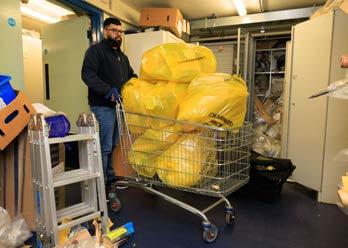
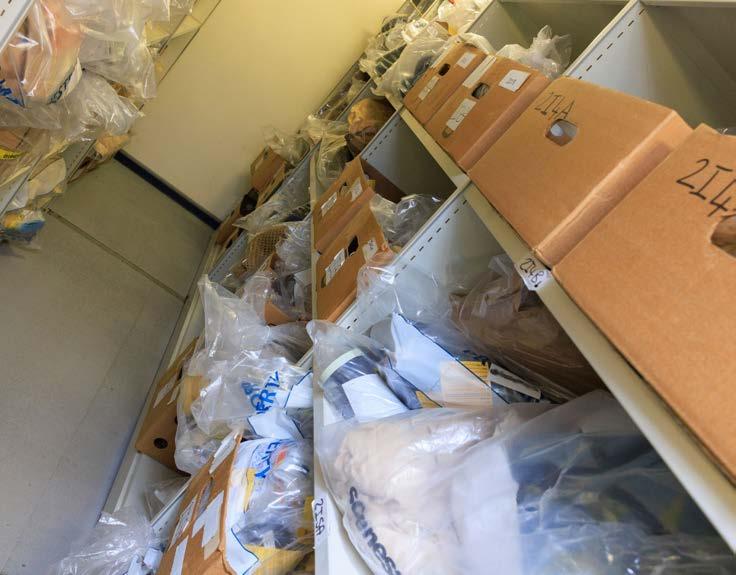

In late January, a GMP officer was seriously injured when a vehicle hit her at speed while she was investigating to a report of suspicious behaviour in Cheadle. A man has been arrested on suspicion of attempted murder.
Ch Insp John Picton of the Stockport district said: “This incident is truly shocking and shows how quickly situations our frontline officers attend can escalate. Our officers go to work every day to provide an outstanding service to the communities they serve, and achieve fantastic results in situations that are often challenging. Our investigation is continuing and the officer is being supported by all of us at the Stockport district; she is recovering well.”
From September 2018 to September 2023, the number of assaults on police constables in England and Wales rose from 28,668 to 42,424 incidents: an increase of 48 per cent. In the same period, assaults on officers resulting in injury increased by 14.8 per cent.
It’s important to remember that any assault or hate crime that happens to you while you are on duty is a serious matter. Being assaulted or abused at work is not normal; it’s not acceptable; and it is absolutely not just ‘part of the job’. Oscar Kilo’s Operation Hampshire aims to prioritise officer and staff wellbeing by ensuring that officers and staff who have been attacked are
taken seriously as victims and that the impact of every assault is considered, regardless of injury. It provides guidance, strategy and resources both for officers and staff who have been attacked while working, and for their supervisors and line managers.
Sometimes when we experience a traumatic event – such as being assaulted or subjected to a hate crime –the full impact of what has happened doesn’t hit us until days or weeks afterwards. The psychological effects of being attacked at work are often more insidious, and can last far longer, than the physical injuries. Different people experience and respond to trauma in very different ways and with varying levels of resilience, formed by their own individual experiences; and there is no right or wrong way to experience trauma.
GMP recognises that the wellbeing of our officers and staff is paramount to maintaining a strong, effective police force, and we want to ensure that every officer or member of staff who is attacked while at work is treated like any other victim of a crime – that they have meaningful support, regular contact from the team investigating their case, and that the support that they receive has oversight at a senior level. Operation Hampshire is a national initiative offering the necessary strategy and guidance to help forces respond effectively to assaults on police officers
and staff, enabling us to get the basics right for our colleagues when they need us most.
At the heart of Operation Hampshire is a seven-point charter that continues to guide our approach:
1. Assaults on police officers and staff should be investigated with the same care, compassion and commitment as an assault on a member of the public.
2. The Victims’ Code of Practice (VCoP) applies to all victims of crime, including police officers and staff.
3. The assaulted officer must never be the officer in charge (OIC) for the investigation into their own assault.
4. Victims recover better and more quickly if they receive appropriate support.
5. The supervisor must ensure that the district commander or head of department is informed to provide continuity of welfare support.
6. The victim of the assault and/or the line manager should ensure that Form 700B is completed as soon as possible after the event and sent to the Health and Safety Unit.
7. To achieve a successful prosecution, the best evidence should be provided.
You can learn more about Op Hampshire, including information and resources for victims of crime, their supervisors and SLTs, on our dedicated intranet hub at Home > Operational support > Operation Hampshire.
On 25 November 2024 Kathleen Cotton, widow of former GMP sergeant Alan Cotton, celebrated her 100th birthday. To celebrate the occasion, Kathleen was visited by chair of the Manchester branch of the National Association of Retired Police Officers (NARPO) Sandie Wilde and treasurer Maureen Graham, with flowers and a gift; as well as CoM Supt Simon Nasim, who brought a personally written card from GMP Chief Constable Stephen Watson QPM, who was unable to attend.
Sandie said: “Kathleen is still very active. She was a teacher at a local primary school, and while out and about she is still approached by former pupils who have now retired!”
Sgt Cotton, who served with GMP from around 1950 to around 1980 before going on to work in Eccles courts, is well remembered as a great character. During his policing career, he was the recipient of a bravery award for rescuing a man from one of the highest buildings in the city.
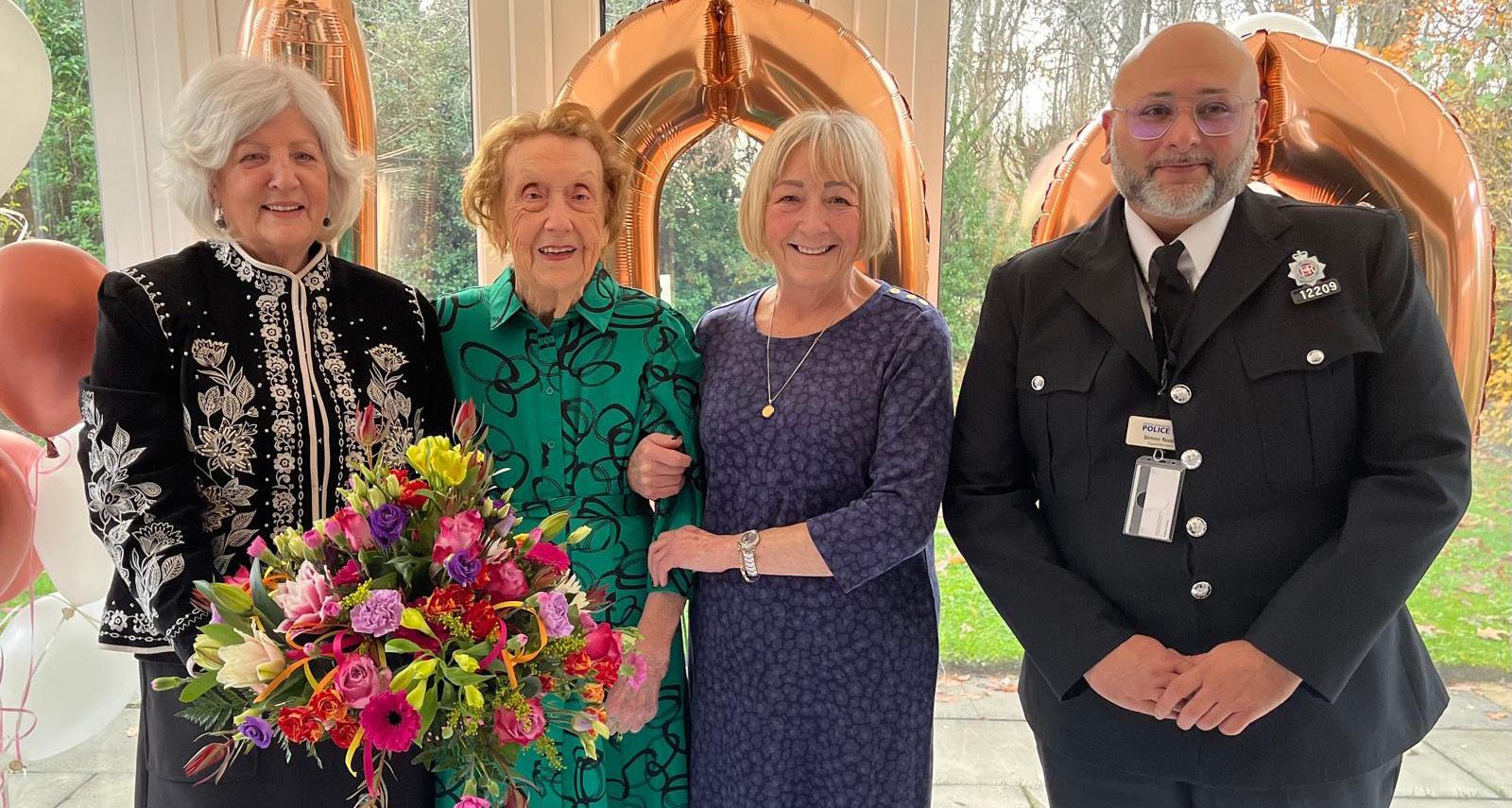


Thank you to everyone who attended or submitted questions for the first 2025 Ask the Boss session which was held in the canteen on 23 January.
To make sure you all keep updated on the questions and answers please see an overview below.
Any actions the SLT took away we will have to report back on at the next Ask the Boss on 6 March in the conference room. It will still be an informal Q&A session.
Can officers be given access to key APPS/ Cleartone / PNC as this will allow officers to do their jobs quickly and more efficiently?
See below as similar to Q2.
When are Bury SLT going to put all OSO’s who haven’t got PNC through the course? Why don’t Bury organise a course at Sedgley and get all OSOs trained, as when officers in the neighbourhood get trained on PNC they usually move on within a short period of time, taking the knowledge with them. Lots of research is done by police staff and just using IOPS is dangerous as it doesn’t give the full truth / picture for decision making. PNC is changing to LEDS so there has been minimal course provided by the force with the impending change. We have officers on the list for course and we currently have 26 PNC users at Bury. SLT will take away a review of PNC users and fairness of who people use for checks.
Will there be an opportunity for a district ANPR car?
I have done some further digging on this since Ask the Boss. It is doable but as with anything comes at a cost. CI Michael Barton has approached Bury Council for the initial funds and GMP Bury would incur the upkeep costs. We will keep you updated.
Why are response supervisors showing themselves state 6 at jobs when they are sat at a desk in Bury Police Station and not at an incident location?
If they are, this needs reporting to SLT either Duty Silver or Duty Gold. It is also a potential discipline issue. For those that have been doing this – stop. We need to be honest and ethical about performance.
Would you be able to tell me why the Adult Safeguarding Unit wear smart clothing (CIS attire). The unit consists of PCs not detectives. Every other PC unit in Police station are either plain clothes or in policeissued uniform, surely it should be one rule for all?
Various roles require to be plain clothes due to the nature of the role and shouldn’t be binary in terms of whether you are a detective or not. A vulnerable victim is likely to feel more comfortable speaking with an officer wearing plain clothes.
I did like this question, and it has made me to start a review of dress
Below you will find some updates from across the district for your awareness regarding information we’ve been asked for.
For your awareness supervisors are held to account at daily performance DMM. Focus for February / March
Performance DMM continues to be locate – trace and bail management. Crime outcomes have now also been added.
The custody fix and roof replacement is still ongoing with a proposed finish date of 31 March.
standards across Bury.
Please can three CID cars have phone holders for when we use our work mobiles as sat nav? There is nowhere to rest the phone while driving to follow directions. Thank you.
Yes you can.
For me the whole concept of policing has been to reassure the community, take crime reports, take statements, be visible in the community, doing proactive matters / tasks ensuring public and community safety. I find it strange that we’ve gone from asking how many crime reports we have / are dealing with and being tasked with also how many intelligence reports we have obtained to now how many Bee in the Loop sign ups we have. What are the policing priorities?
Policing priorities has always been to serve our communities. Part of this is engaging with our communities to build trust and confidence in the police service.
As a neighbourhood police officer there will be many strands to your job, and this is the nature of policing. I am aware that there is a Bee in the Loop target board in the neighbourhood office and if it is this that is affecting morale, please link in with CI Michael Barton so it can be reassessed how we monitor performance.
Also, I am happy to speak to whoever wrote this question.
To ensure you are up to date with CPD and safe to be deployed please ensure you are up to date with your PPST and First Aid and that you have completed all your mandatory NCALT packages. Any questions ask supervision.

More often than not we forget about the good work that has happened across the district because we are constantly moving on to the next thing.
We wanted to use District Brief to ensure this good work is captured and we highlight those that have gone above and beyond not only for our communities but also to help other areas of the force – whether that is helping with unruly prisoners in custody to ensuring victims feel supported at every step of the way with the VIPER team.
Below is just a snapshot of the good work that happens every single day across Bury:
PC Kaliski and PC Houlibecq
Officers from B Relief deployed to an incident which was reports of males with knives outside a hotel in Tottington. When officers attend the scene, PC Kaliski and PC Houlibecq engaged in a foot pursuit through difficult terrain and detained 2 x males. Both were found
to be in possession of large kitchen knives described by the initial informant, they were arrested and taken to Bolton custody where they were bailed under investigation.
Sergeant James Ashworth said: “This incident was one that would have caused considerable concern to members of the public which B relief attended extremely quickly. I want to commend PC Kaliski and PC Houlibecq for their tenacity across the terrain, they never wavered and thanks to them, we were able to arrest the two males, and therefore mitigate any further concerns to our communities.”
PCSO Hannah Wilson
A report came in from a member of the public around one of their neighbours who appears to have entered the address with a samurai sword. The log appeared to link to further reports of a male seen in the street with the same sword. PCSO Wilson attended to conduct CCT enquiries and after reviewing, raised it
Across Bury, officers and staff have been working tirelessly to build public trust and confidence, with one of the key elements being improving safety.
To do this listening circles have been created to develop conversations and ultimatly end violence against women and girls (VAWG).
The team at Bury decided to create a three-step process:
1. Create an event to listen to the concerns and fears.
2. Take down actions, speak with partners and put measures in place based on feedback from the event.
3. Invite the group in again and tell them the outcomes of the actions and what measures have been put in place.
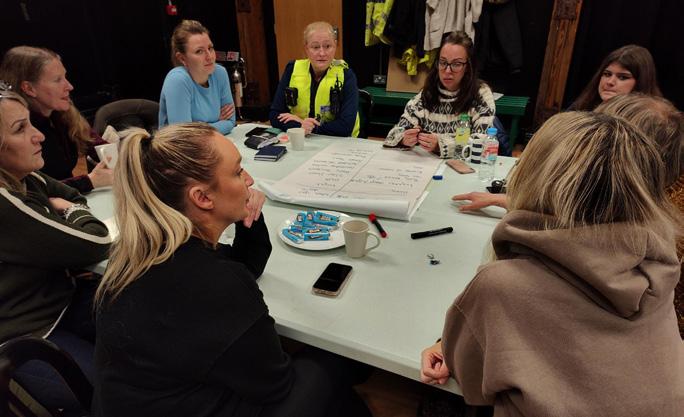
The first event of 2025 was held at The Carol Godby Theatre Workshop, Bolton Street, Bury and attended by Chief Inspector Michael Barton, Inspector Abed Hussain, Sergeant Andy Vernon and PCSOs from the neighbourhood team.
This was a fantastic, lively and engaging meeting attended by 36 women and girls from the Bury area which is a great turnout for the event.
Those attending were split into four groups and asked questions such as:
• When do you feel the safest?
• When do you feel unsafe?
• Who do you feel safe with?
• Where do you not feel safe?
• When do you feel most safe?
• When do you feel least safe? Everything said was noted down to ensure that the steps continue, and any concerns raised could be addressed and discussed the next time the group met.
Representatives from The Attic Project were involved in the discussions and Michelle from the organisation noted: “I feel the event was valuable as it is important that GMP fully understand how unsafe local residents feel in our own communities. The event was well
as a concerned. Patrols then attended, arresting the male and a cross bow and two swords were recovered from the address.
Fantastic and diligent work from PCSO Wilson resulting in dangerous weapons taken off our streets.
DC David Potter
At the beginning of January, a female was violently dragged from her vehicle by her hair by two males who then went on to steal her vehicle. This was an extremely distressing incident for the victim, and it occurred very close to her home address. On 15 January, a juvenile was arrested and subsequently charged with robbery. Not content with this, DC Potter relentlessly pursued the second offender to try and provide some closure for the victim. A further juvenile was arrested and was subsequently charged and remanded in custody. DC Potter produced a compelling case to the CPS and expertly argued the need to remand this individual.
attended with community representatives from across the borough and it was clear we all share the same concerns.
“We really appreciate the police have a very difficult job to do on such little resources, but local communities need to see visible officers walking our streets.”
Chief Inspector Michael Barton said “Silence is not an option when it comes to violence against women and girls. I am working hard to build trust and confidence in policing across all communities in Bury, especially those that are less engaged.
“I am confident I will succeed, which will increase community intelligence and reporting. This allows my teams to deliver problem-orientated policing and protect the most vulnerable within our communities.”
